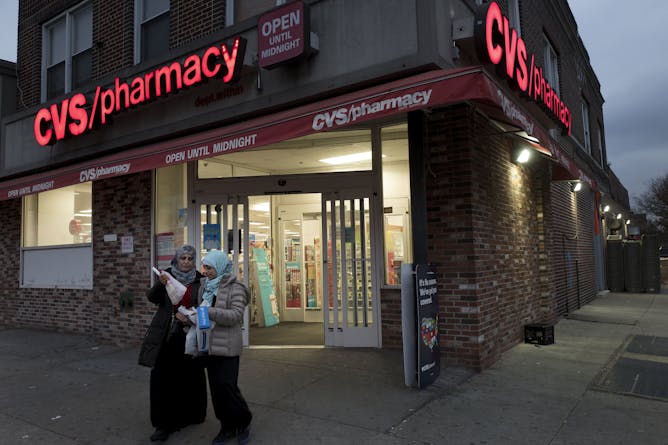| |
|
|
|
|
|
|
| |
|
Editor's note
|
|
Health care providers and insurance companies always look for ways to lower costs, but is a merger of a huge drug store company and the nation’s third largest health insurer the way to do that? Sharona Hoffman, professor of health care law and bioethics at Case Western Reserve University, explains the pros and cons of the proposed union, noting that the “effect will likely be significant.”
Just how bad is Hollywood’s diversity problem? A new analysis of hundreds of films from the past decade suggests that consumers may be to blame. More diverse movies tend to earn less in the domestic and international box offices.
Meanwhile, novelists who have made Hollywood their subject probably aren’t shocked by the sexual abuse scandals that have roiled the industry over the past few months. They’ve been writing about it for decades, and according to American Literature professor Billy Stratton, few have taken a deeper dive into Hollywood’s seamy underbelly than Nathanael West and Bret Easton Ellis.
And, Thursday marks 76 years since the Japanese attack on Pearl Harbor. We’ve included a special section featuring some of our stories on World War II.
|
Lynne Anderson
Health + Medicine Editor
|

|
|
Top stories
|

A CVS drugstore in Brooklyn, New York, on Dec. 3, 2017.
AP Photo/Mark Lennihan
Sharona Hoffman, Case Western Reserve University
CVS, which operates nearly 10,000 pharmacies across the country, announced intentions to buy Aetna, the nation's third-largest provider of health insurance. Here's how consumers could be affected.
|

Actress Viola Davis focused her speech at
the 2015 Emmy Awards on diversity, saying ‘The only thing that separates women of color from anyone else is opportunity.’
Phil McCarten/Invision for the Television Academy/AP Images
Roberto Pedace, Scripps College
An analysis of more than 800 top-grossing films suggests diverse movies struggle in front of international audiences.
|

For decades, novels have implored readers to look beyond the glamour and riches.
Trey Ratcliff
Billy J. Stratton, University of Denver
In their novels, Nathanael West and Bret Easton Ellis depict a world few want to admit exists, a place where 'Unless you're willing to do some pretty awful things, it's hard getting a job.'
|
|
|
|
|
|
|
Ethics + Religion
|
-
Diane Winston, University of Southern California, Annenberg School for Communication and Journalism
In the '60s, a Roman Catholic religious order, the Immaculate Heart Sisters, created a new vision of a religious community. The California dream and its promise was central to their journey.
-
David Mislin, Temple University
The Supreme Court was divided today over claims of religious freedom in the case of a gay wedding. History shows how contentious religious freedom has been in America.
|
|
Pearl Harbor anniversary
|
-
Peter Harris, Colorado State University
The Japanese attack on a US naval base on Dec. 7, 1941 set in motion a series of events that transformed the United States into a global superpower. Will Donald Trump bring that era to an end?
-
Samuel Redman, University of Massachusetts Amherst
Thousands of American women moved west to take advantage of wartime employment opportunities during WWII. For some, this version of the California dream was temporary; for others, it lasted a lifetime.
-
John Broich, Case Western Reserve University
In the 1920s and early 1930s, American journalists tended to put the ascendant fascists on a normal footing.
-
Joe Perry, Georgia State University
Through the Nazification of Christmas, the regime was able to gain the support of ordinary Germans.
|
|
Trending on site
|
-
David C. Barker, American University
If Republicans don’t cut taxes on the wealthy when they have control of both houses of Congress and the presidency, what do they live for?
-
Artemis Spyrou, Michigan State University; Wolfgang Mittig, Michigan State University
By figuring out fission, physicists were able to split uranium atoms and release massive amounts of energy. This Manhattan Project work paved the way both for atomic bombs and nuclear power reactors.
-
Deirdre Conroy, University of Michigan
Many hope that marijuana will help their insomnia. A sleep psychologist examines the evidence.
|
|
|
|
| |
| |
|
|
|
|
|
|
|
|